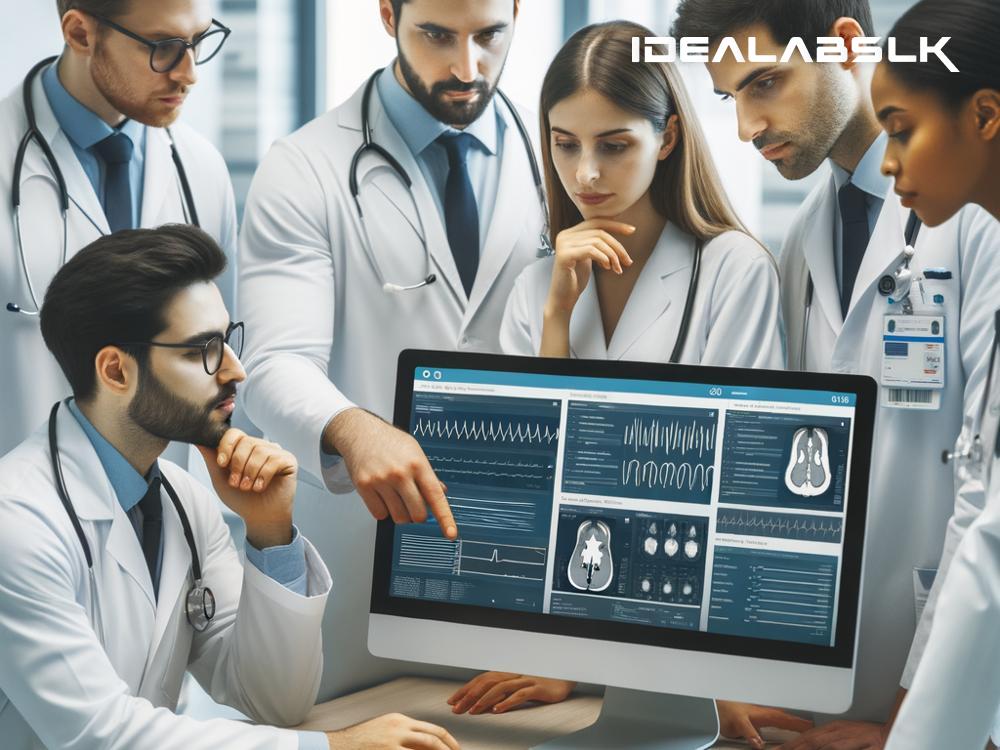How EHR Software Transforms Healthcare: A Simple Guide
In today's fast-paced world, the healthcare industry is not left behind in embracing the power of technology to improve services and patient care. One of the most significant advancements has been the introduction and widespread adoption of Electronic Health Records (EHR) software. But what exactly is EHR, and how is it transforming healthcare? Let's break it down in simple terms.
EHR: The Basics
Imagine going to the doctor and, instead of them writing notes on a piece of paper, they type everything into a computer. That's the basic idea behind Electronic Health Records (EHR). EHRs are digital versions of patients' paper charts, but they're much more than that. They contain all the medical history, treatments, diagnoses, medications, immunization dates, allergies, lab results, and even billing information in one place. This might sound simple, but it's a game-changer for healthcare.
Benefits of EHR Software
- Better Coordination of Care
Before EHR, if you saw multiple doctors, each might have a separate record for you. Information wasn't easily shared, leading to disjointed care. With EHRs, all your doctors can see the same information. This makes it easier for them to work together, improving your care.
- Increased Efficiency and Convenience
No more filling out the same forms every time you visit a new doctor. EHRs save time for both patients and healthcare providers. They reduce paperwork, minimize the risk of lost or incomplete information, and even allow doctors to send prescriptions directly to a pharmacy electronically.
- Enhanced Patient Safety
EHR software can alert doctors if they try to prescribe a medication that could cause an allergic reaction or interfere with something else you're taking. This immediate feedback helps prevent errors and keeps you safer.
- Improved Patient Engagement
Many EHR systems come with patient portals. These online platforms give you access to your health information anytime, allowing you to check lab results, request prescription refills, and even communicate with your doctors. This can lead to patients being more engaged and proactive about their health.
- Better Health Outcomes
With comprehensive, up-to-date information at their fingertips, healthcare providers can make more informed decisions. This improves the quality of care and can lead to better health outcomes. Additionally, EHRs can help in managing chronic conditions by tracking data over time, identifying potential issues before they become serious.
The Impact of EHR on Healthcare
The transformation brought about by EHR software is profound. It's not just about digitizing patient records; it's about fundamentally changing how healthcare is delivered and experienced.
-
For Healthcare Providers: EHRs offer an unprecedented level of access to patient data, streamlining the diagnostic and treatment process. Moreover, they facilitate easier documentation, improved billing accuracy, and better compliance with healthcare regulations.
-
For Patients: The transparency and accessibility of health information empower patients to take an active role in their healthcare. It enhances their understanding of their condition and treatment options, promoting better communication with caregivers.
-
For Healthcare Systems: EHRs contribute to public health initiatives by providing valuable data for research and helping track diseases' spread or efficacy of treatments on a large scale.
Challenges and the Way Forward
Despite the clear advantages, EHR implementation is not without challenges. Privacy and security concerns top the list, as the digital nature of the records can make them targets for cyberattacks. There's also the hurdle of ensuring all healthcare providers adopt EHR systems and can exchange data seamlessly—a concept known as interoperability.
The future of EHR lies in overcoming these challenges, improving user interfaces for both healthcare providers and patients, and integrating advanced technologies like artificial intelligence to predict and prevent health issues.
Conclusion
The shift from paper to digital records through EHR software is transforming healthcare in fundamental ways. By improving the efficiency and quality of care, enhancing patient safety, and fostering better health outcomes, EHRs are an essential element in the evolution of healthcare. As technology advances, the capabilities of EHRs will only grow, further revolutionizing how health care is delivered and experienced. The journey of EHR transformation is ongoing, but its positive impacts on healthcare are undeniable, promising a future where healthcare is more connected, efficient, and patient-centered.

